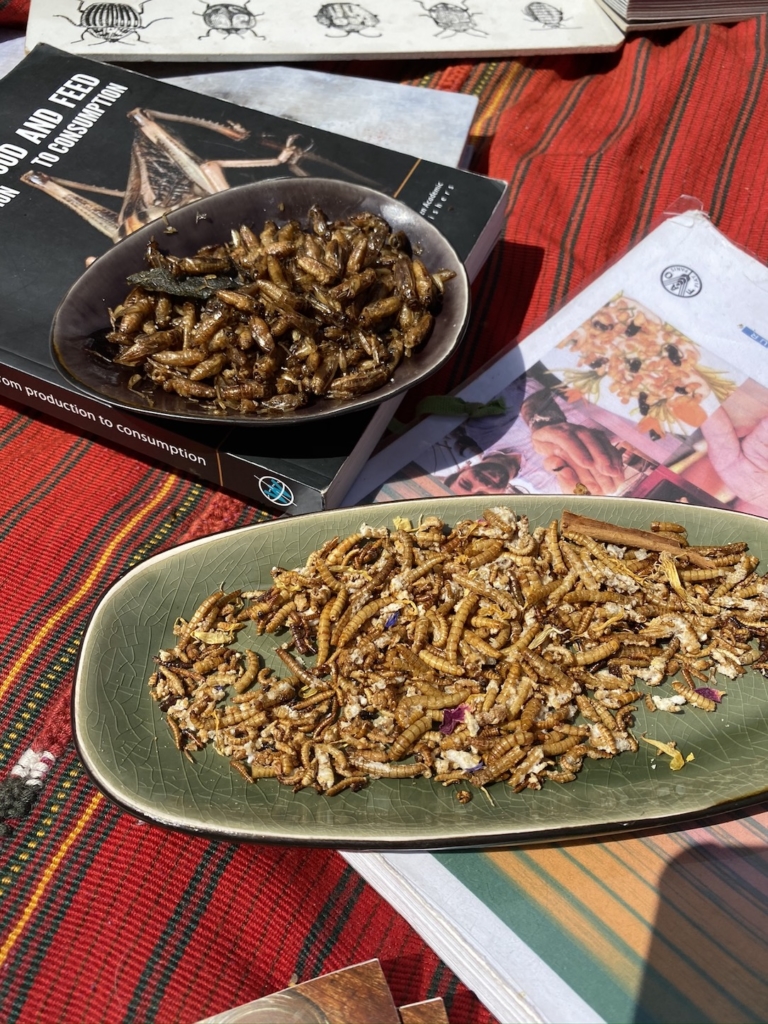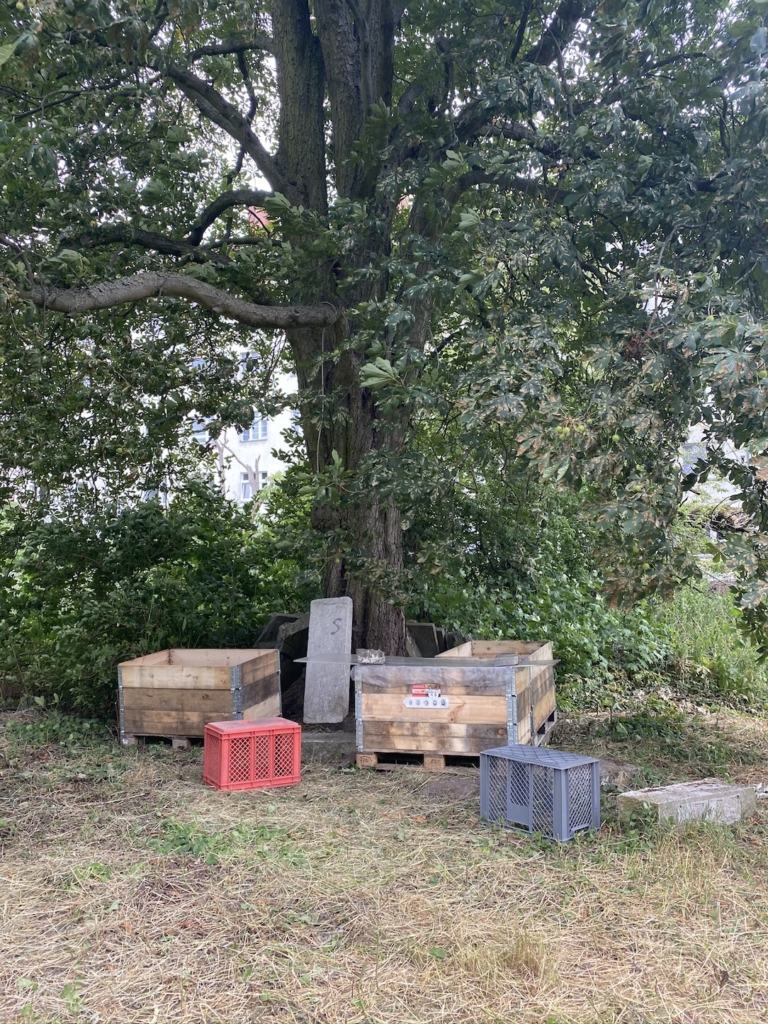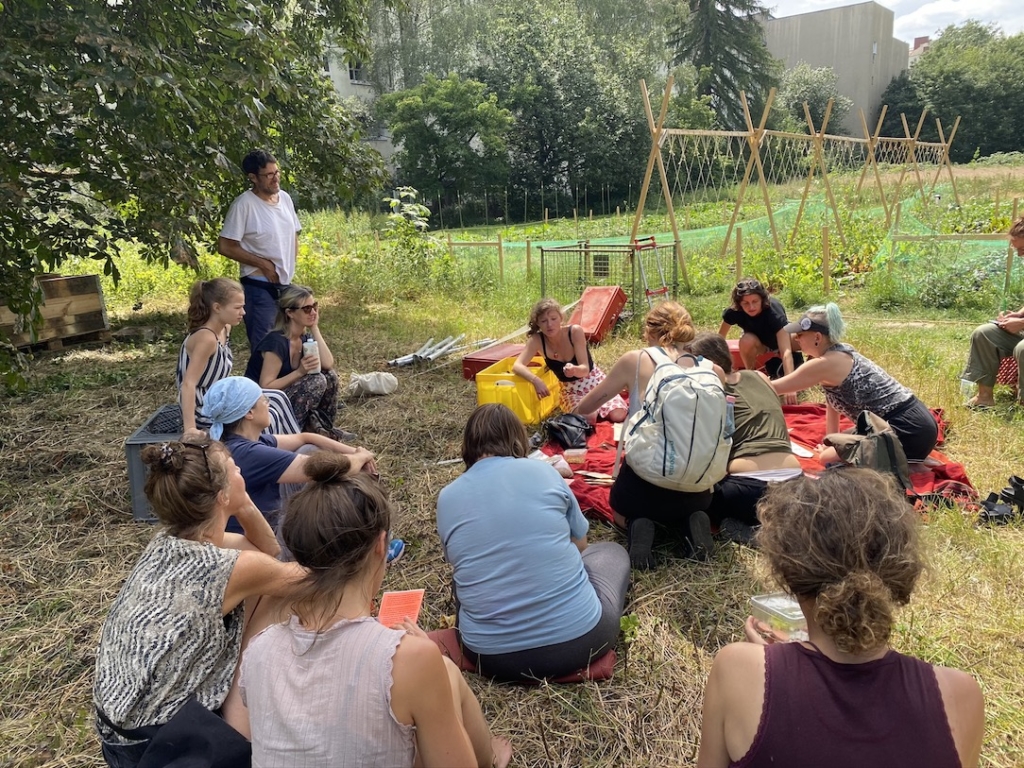During the summer we had the pleasure of getting in touch with the Prinzessinnen Garten collective of Hermannstrasse 100 in Berlin. The new space of this co-gardening project is a deconsecrated cemetery, full of history in the heart of Neukoelln. There we placed the first public open-air mealworm farm in Berlin, an experimental project that we launched to show how easy it is to cultivate these delicious animals, that are at the same time precious for the environment.
Insect farming instead of insecticide.
The motivation of our new farming project is not the production of edible insects as food, but rather the possibility to create a space for educational purposes. Instead of fighting insects with pesticides, we want to bring them to life thanks to an urban insect farm that teaches the farming processes within workshops and raises awareness of edible insects. The aim is to rob people of cultural reservations and disgust so that they perceive insects as an alternative or supplement to meat consumption. With the Urban Insect Farm we demonstrate how insects can be bred as protein suppliers in an urban context in the smallest of spaces and with the least amount of resources.


For us, edible insects are not only a question of taste, but a cultural statement! We do not want to show just how to prepare them, but also how to breed them.
Building up together for a new future
During a workshop we built a tiny house for the mealworms, entirely covered with wire mesh, to keep out other insects and especially mices. The Farmhouse is raised from the ground, with a canopy that protects it from rain, but let circulate air at the same time. None of the attendees knew what to expect, but everyone was thrilled to find out the characteristics of these bizarre and interesting animals. The worms have become part of the circular economy of the garden. We fed them vegetables that we cultivate and in exchange, they release very precious excrements rich in minerals, which we used as fertilizer for plants.




Mealworm power
There are several interesting things about mealworms. They are easy to grow, resistant, and do not require any special ambient temperature and the risk they escape is low. They are perfect to explain especially to children and adolescents the biological cycle of worms from larva to pupa to beetle. But the most interesting thing is, that they feed mainly on flours, grains, and vegetables, but they are also capable of composting microplastics, cork, and polystyrene! Several institutes of Chemistry and Biology around the world are investigating this topic. And who knows, maybe soon they could become valuable allies in the fight against waste disposal. Check this article here to get more about it.
Please, feel free to contact us for further information or to BOOK A VISIT TO THE FARM.